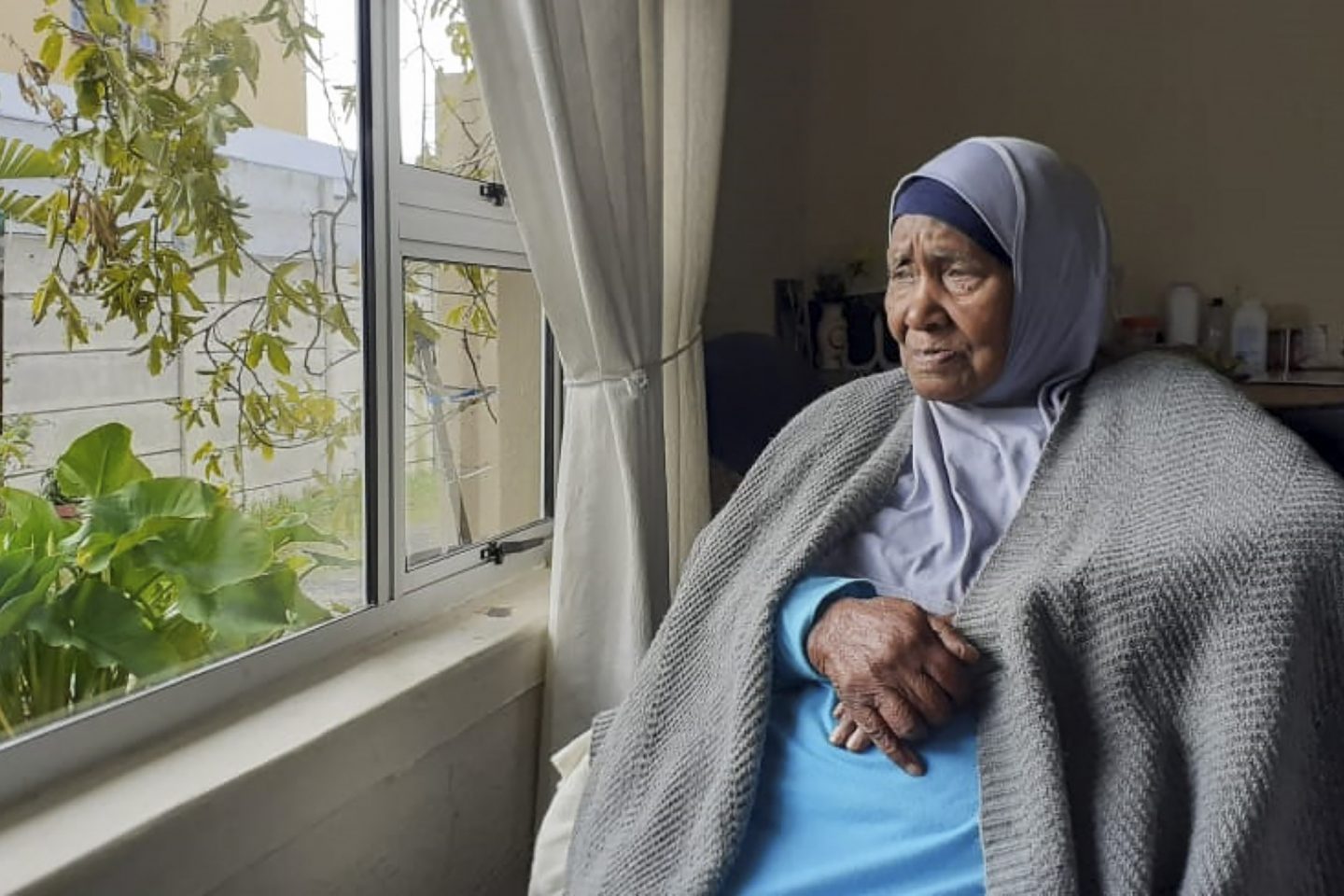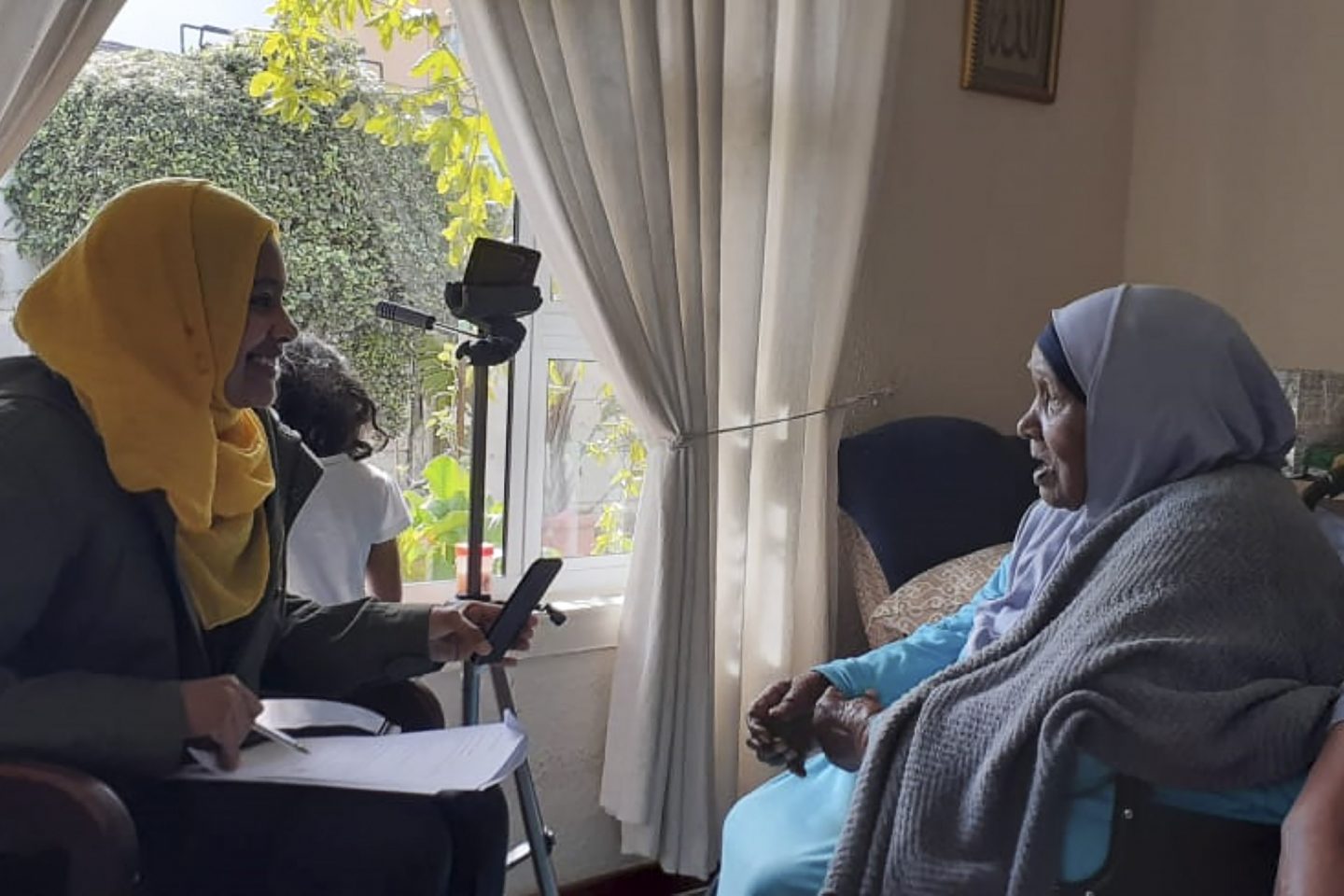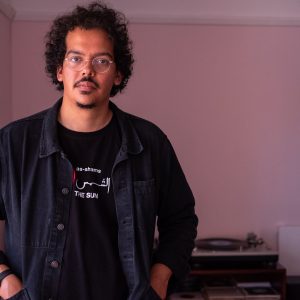‘Jawwap!’ preserves Cape Malay history and memories
A new YouTube series delves into the wealth of stories that reside in the Cape Malay community, documenting the past for future generations and helping those who speak to heal.
Author:
19 February 2021

The word jawwap has been adapted over centuries in Cape Town to refer to the harmonising during the Islamic recitation of dhikr and prayer. In the Cape Malay community, the word translates roughly “to participate”. It originates from the Arabic jawab, which means “to answer”. Drawing inspiration from this background, Jawwap! is the name of a new YouTube series that documents the stories of the Cape Malay community.
Created by husband and wife Ismail Abrahams and Fatima Galant Abrahams from Hanover Park, Jawwap! is screened on their YouTube channel, The Cape Malay. It tells stories of ordinary people from a community often not heard and, in the spirit of the various meanings of jawwap, reflects the different experiences of its many characters.
The subject of the first episode is 101-year-old Galiema Ismail Hendricks, who has a wealth of recollections to share. Recalling her youth in Cape Town, she tells of a time when food was cooked in large pots over fires and community bonds were strong. It is the perfect opening for a series that also aims to put the focus on individuals who were part of the forced removals around Cape Town, a traumatic experience shared by almost everyone in the community. Aunty Galiema’s family was forcibly removed from Draper Street in Claremont under the Group Areas Act.
Another episode features Bo-Kaap resident Mogamat Yusuf Abbas, who can name every teacher who taught him in school. Through these stories, the community’s heritage and traditions are preserved. A history of the Cape is told through a lens that relies solely on memory. As the Abrahamses’ website states: “The team feels that with the new generations old vocabularies and stories around culture and traditions are slowly fading, hence its slogan ‘Jawwap!’, which means do not fade out; to stand together; to be heard, or to participate.”
Book inspiration
The series is a follow-up to the book Imam Haron’s BILAL, written and self-published by Fatima. (In the Cape, “Bilal” often refers to the muezzin who does the call to prayer.) Although the book was completed in 2019, a series of delays – including performing the hajj pilgrimage, giving birth and the Covid-19 pandemic – means it has not been launched publicly yet.
Imam Haron’s BILAL tells the story of Fatima’s father Abduraghmaan “Pinkie” Galant, who was a student of the late anti-apartheid activist and Muslim cleric Imam Abdullah Haron during the 1960s. The imam was notoriously detained for 123 days without charge and tortured and murdered by the apartheid Security Branch in 1969. The perpetrators have never been punished.
The book was compiled from notes written by Galant over a period of 12 years. It documents his memories growing up in Draper Street in the 1950s before the forced removal of the family. In particular, there are rich memories of the madrassah (religious school) at Al-Jamiah mosque in Stegman Road at which Haron taught.
“My father and his brothers were students of the imam, so they were always with him – going into the townships, feeding the poor or going to mosques. I come from a very musical family so that was another way for the imam to use them in the mosque, with what they could do with their voices. That is how he grew fond of them and they spent a lot of time with him,” says Fatima.
The book also deals with her father’s struggle with drug addiction – the main reason it took so many years to complete. “Many people say that … the apartheid era and what those people lived through played a big role in the social illness that is now left behind, because they had to endure so much trauma,” she says.

Imam Haron’s BILAL is filled with photographs from that time. “I love history, so I was sitting with most of his pictures because I like to record stuff. So, I sat with most of those things and compiled them,” says Fatima, who also created an in-depth glossary of commonly used Cape Malay words, which she could not find anywhere else in her research.
Galant describes how the process evolved for him. “Years ago my daughters suggested that I start writing things down because I always tell them about these people who had such a beautiful influence on my life,” Galant says. “But for someone who didn’t really like school, to read or to write, this was a big challenge for me. The majority of people in the Cape Malay community from my generation don’t write. But surprisingly, once I gave it a try, stuff just kept pouring out of my memory and I taught myself for the first time to believe in myself, to give me that chance.”
Participatory storytelling
The final chapter of the book, titled Stukkende Stories (Broken Stories), is a compilation of stories told by friends, family and members of their community. It became the seed for the YouTube series.
“We wondered how many other stukkende stories were out there,” says Fatima. “People might not know how to publish, but they are willing to speak and are so comfortable talking in their own way. The way the book is written is just how we speak. I wanted to continue telling these stories. So much happened to these people and it’s not something to be forgotten about, just like the imam.”
Explaining the name of the series, Fatima says: “When I grew up, the word jawwap was used, for example, when someone sang Happy Birthday, and when the voices dropped then someone would shout ‘Jawwap! Jawwap!’ [to sing louder]. When you look at the Cape Malay choirs, the main item which is called the Nederlandse lied, where the lead singer sings a phrase and the choir responds, it’s the same situation. Then it is about knowing that you’ve been heard and you’ve participated… And then it stuck with me. I spelt it the way I know from growing up.”

The Abrahamses made a list of those they wanted to interview and asked their subjects to find old photographs. Fatima was initially surprised by how many people were willing to share their stories. Since June last year, they have already captured over 30 interviews, shooting twice a week for months on end. They have about 90 more interviews still to get through.
“We’ve also interviewed people via Zoom from other countries to talk about their different traditions – how they do weddings, doekmals or doepmals [how their children are named], for instance. And people from Cape Town who were exiled and were too sad to even speak about it. There’s also the rugby legend who was never recognised for his potential, or the talented musician who was so sad and angry for not being able to excel he left South Africa.”
Making it work
The Abrahamses do not have any formal training in film-making or writing, so they decided to film the series in the simplest do-it-yourself way: with a cellphone on a tripod and a lapel mic for sound. Fatima taught herself how to use her home computer’s basic editing software and put each episode together. But what they lack in technological skills, they make up for in loads of content and, more importantly, access.
Jawwap! was launched in January, and each episode is a mini-documentary of around 20 minutes. For both Ismail and Fatima it is important that they are getting the stories of their own community out there, while also breaking stereotypes by representing their community through narratives other than food or gangsterism.
For the most part, the subjects are left to speak freely and often they comfortably switch between English, Afrikaans, Arabic and a mix of uniquely Cape Malay words. “We are having fun,” says Fatima. “The job timeline is much quicker than producing a book. The responses are quicker, so I’m enjoying myself. It’s lekker, man.”
Related article:
Stories from Jawwap! help uncover the often traumatic histories of Cape Malays that apartheid and colonialism helped to silence. The filmmakers believe in the ability of stories to heal and feel that they have learnt real-life lessons from the interviews. “When you sit there and listen to these people, it touches you. Despite hardship, we can still take the positivity out of something to create content that can inspire others,” says Fatima. “Our people have a joyous spirit. They know what it is to give.” Ismail is moved deeply by his experience so far and says he loves to listen to the stories and watch people’s expressions as they tell them. “Our slogan is Jawwap! to bring back those memories,” he says. “Our people were always told to keep quiet and that’s why we wanted to do this – so people can tell us about their lives and memories. Just sitting there listening to them, looking at their tears and laughter, is amazing.”
A new episode of Jawwap! is uploaded every second Sunday on The Cape Malay YouTube channel.
Correction, 19 February 2021: This article previously stated that some interviews were about traditions around weddings and burials, when they were instead about weddings and naming ceremonies for children. An addition was also made to clarify that the rugby legend did not leave South Africa.



